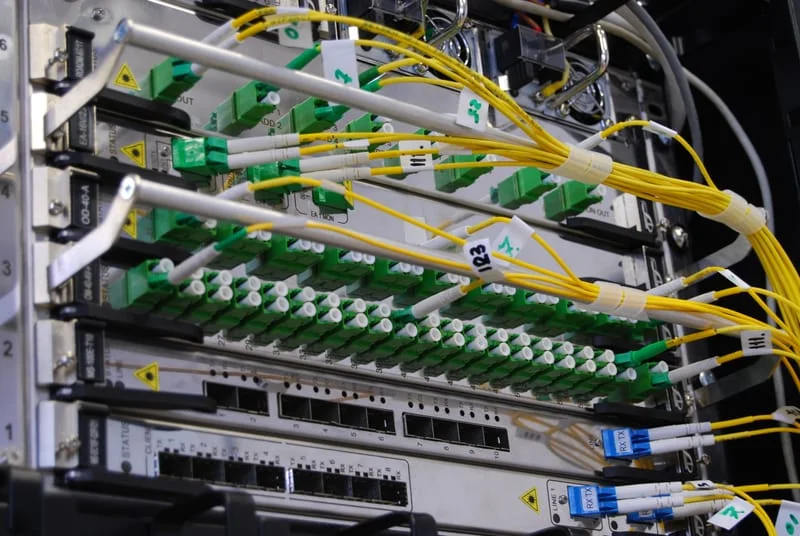What Is The Role Of System Integrator In Your Network

The digital age has ushered in a multitude of technological innovations, and with it, the necessity for seamless integration of complex systems has emerged as a paramount challenge. This is where the role of a System Integrator comes into play, serving as the linchpin that binds disparate network components into a cohesive, high-functioning entity. So, what exactly does a System Integrator do, and how does it benefit your network? Let’s embark on an exploratory journey that promises to shift your perspective on this critical role.
At its core, a System Integrator is tasked with the monumental responsibility of harmonizing various subsystems within an organization to work in unison. Imagine an orchestra, with each instrument—be it hardware, software, or network elements—playing a distinct part. The System Integrator assumes the role of the conductor, ensuring that every component not only operates efficiently on its own but also contributes to an orchestral symphony that delivers optimal performance. This harmonization necessitates a deep understanding of each individual technology's capabilities and limitations.
One prominent facet of system integration is the evaluation of existing infrastructures. Organizations frequently grapple with legacy systems that might be inefficient or incompatible with modern advancements. A proficient System Integrator assesses these systems, identifying bottlenecks and inefficiencies. This diagnostic phase is crucial, as it lays the foundation for informed decision-making. By pinpointing pain points, a System Integrator can propose tailored solutions that address specific organizational needs. The promise of enhanced efficiency and reduced operational friction is an enticing proposition for any business.
Furthermore, System Integrators serve as the vital interface between technology providers and end-users. In an era where the pace of technological advancement is relentless, organizations often find themselves overwhelmed by the myriad of choices available. System Integrators provide clarity and direction, drawing from their extensive knowledge and experience. They sift through countless products and technologies, curating solutions that best fit the unique demands of each business. In this capacity, they are not just implementers; they are strategists, guiding organizations toward optimal operational frameworks.
The integration process itself is multifaceted. A System Integrator employs a variety of methodologies to interlink various systems. This might include APIs (Application Programming Interfaces), middleware, and other integration platforms that facilitate communication between software applications. Moreover, the integration extended beyond mere technical aptitude; it requires project management skills to navigate the complexities of timelines, budget constraints, and stakeholder expectations. This is where the integrator's analytical prowess shines; they meticulously orchestrate all moving parts to ensure that projects are delivered on time and within budget.
Equally significant is the role of System Integrators in fostering innovation. In a landscape dictated by rapid technological shifts, organizations must constantly evolve. Integrators not only integrate existing systems but also propose new technologies and methodologies that can propel businesses forward. They are on the forefront of emerging trends, such as artificial intelligence, machine learning, and the Internet of Things (IoT), advocating for their adoption as part of a holistic strategy for growth. By doing so, System Integrators transform the perception of technology from being merely a tool to an enabler of expansive possibilities.
Security is yet another vital consideration in the domain of system integration. As networks grow increasingly complex, the threat landscape also evolves. A seasoned System Integrator is acutely aware of these risks and incorporates robust security protocols into the design and execution of integrated systems. From firewalls to encryption techniques, they ensure that the integrated network is fortified against potential breaches. In an age where cyber threats lurk around every corner, this aspect of their role cannot be overstated.
Moreover, the human element of integration is paramount. The best technology in the world is futile without proper user adoption. System Integrators recognize that successful integration goes beyond technical execution; it requires engagement with end-users. They facilitate training sessions and workshops, ensuring that users are not daunted by new systems but rather empowered by them. This human-centric approach fosters a culture of adaptability and innovation within organizations, cultivating a workforce that is ready to embrace change.
In today’s interconnected world, the concept of continuous improvement is vital. A System Integrator does not merely implement a solution and walk away; they maintain a vested interest in the ongoing performance of integrated systems. Monitoring and evaluation become integral parts of their role, enabling them to identify areas for further enhancement. This iterative process helps organizations remain agile, quickly adapting to market changes and technological advancements.
In conclusion, the role of a System Integrator extends well beyond the traditional boundaries of system installation and maintenance. They embody a transformative force within organizations, facilitating seamless interoperability, advocating for innovative technologies, and ensuring robust security measures. As businesses navigate the complexities of the digital landscape, the insights and strategies provided by a System Integrator can delve deeply, opening avenues for operational excellence and growth. By embracing the expertise of System Integrators, organizations can unlock the full potential of their networks, fostering an environment ripe for innovation and success. The question remains: is your organization ready to elevate its technological capabilities with the right guidance? The answer may very well lie in engaging with a skilled System Integrator.
Post a Comment for "What Is The Role Of System Integrator In Your Network"